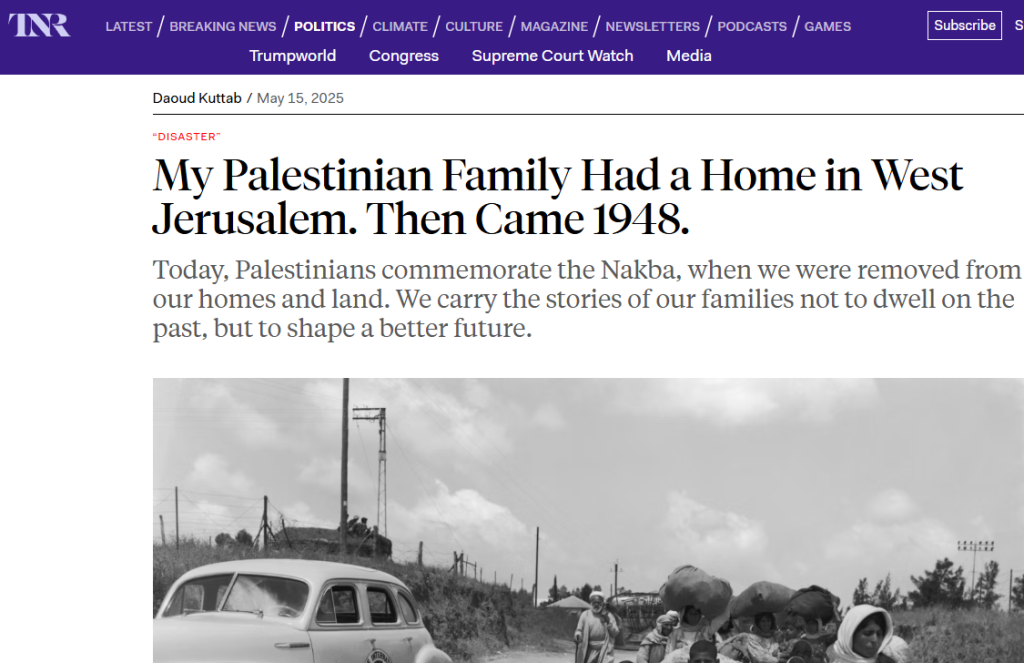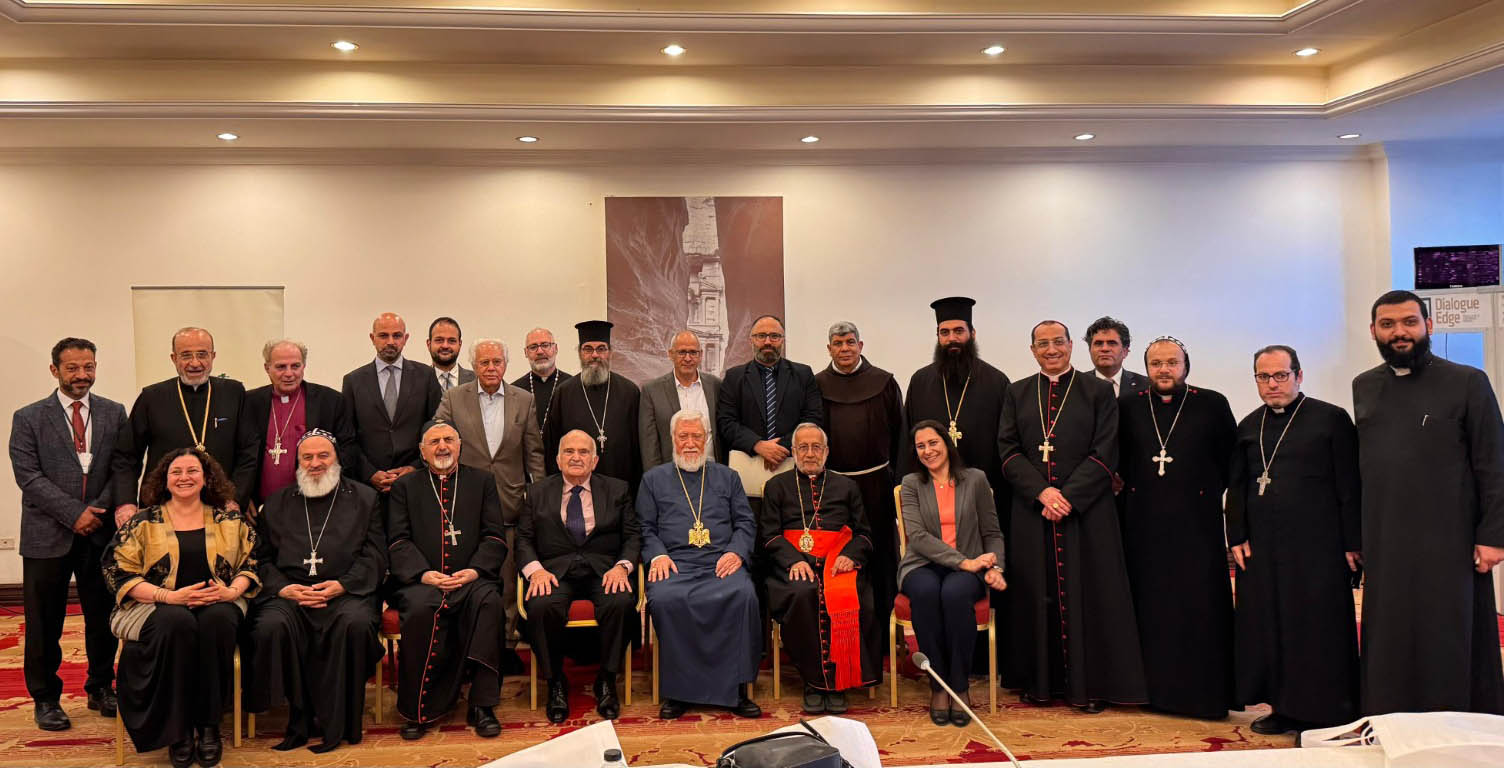
Previous My Palestinian Family Had a Home in West Jerusalem. Then Came 1948.

Amman, Jordan — A pivotal moment in the history of the Arab Levant took place in the Jordanian capital as religious leaders, thinkers, and academics gathered for the conference titled “Christians in the Arab Levant and the Aspirations for Unity and Enlightenment.” The event was held under the patronage of Prince Hassan bin Talal, the Chairman of the Board of Trustees of the Royal Institute for Interfaith Studies, and included patriarchs, bishops, intellectual figures, and representatives from civil society organizations across various Arab countries.
The conference took place amid complex challenges facing Christian communities in the region, including declining populations in some countries, rising exclusionary rhetoric, and their limited presence in educational curricula and official historical accounts. However, it promoted an alternative narrative centered on the themes of “Integration, not isolation; hope, not withdrawal.”
One of the most prominent aspects of the gathering was Prince Hassan bin Talal’s presence. In his speech, he emphasized that Christians are not “immigrant communities” but are rather an authentic and deeply rooted part of the social and cultural fabric of the Arab Levant. His Highness highlighted that religious and cultural diversity is a source of wealth, not a threat, and that protecting this diversity is a shared responsibility among all societal groups. He also stressed the importance of instilling the values of equal citizenship.
The conference culminated in a set of bold yet practical recommendations. These included embedding the history and roles of Eastern Christians into school curricula, encouraging moderate religious discourse among different groups, and promoting dialogue between Christians and Muslims. Such efforts aim to establish a shared culture based on mutual recognition, support political and religious pluralism within the national framework, and develop communication channels between Arabs abroad and at home.
In an interview with Milhilard.org, Archimandrite Dr. Agapius Abu Saada, head of the Greek Melkite Catholic community in Haifa, stated that the conference sent a clear message that the Hashemite leadership is committed to embracing diversity as a fundamental aspect of society. He noted that the presence of Prince Hassan alongside church leaders reaffirmed the vital role Christians play in shaping Arab civilization, both historically and presently. He added, “The recommendations are important and identify critical issues, especially regarding the exclusion of Christians from educational curricula. However, what is required now is serious political and ecclesiastical will to implement these recommendations and to treat diversity as an element of strength rather than a burden. This process requires three key elements: a renewed Christian discourse that moves away from a theology of pessimism; a strong and just state; and an Islamic discourse that recognizes partnership and citizenship.”
Reverend Dr. Mitri Raheb, president of Al-Kalima University in Bethlehem, said that “the recommendations represent a comprehensive and significant qualitative shift, but their success depends on the collective efforts of churches, governments, and civil society organizations. We need a strategic plan that translates these ideas into practical steps, and efforts to expand influence through the media, education, and field activities.”
Rev. Dr. Imad Shehadeh, head of the Evangelical Cultural Authority at Jordan Theological Studies Institute, expressed appreciation for the inclusive initiative taken by Prince Hassan bin Talal in holding a special meeting inviting Christians from the Arab East to share their aspirations for unity and enlightenment. He remarked, “We wish we had been invited to contribute to this meeting along with other Christian clergy, especially because academic thought is very important to us as evangelicals. The recommendations made are already quite broad, so it is difficult to add more.”
Dr. Shehadeh also shared additional recommendations with Milhilard.org” including emphasizing the human desire for unity and love, regardless of political, religious, ethnic, or social backgrounds; defending the rights of opposing opinions and making serious efforts to understand them; and emphasizing the Christian theme of loving one’s enemies and blessing those who persecute or offend. He highlighted that these principles are reflected in religious and philosophical realms, and that Arab Christian heritage and history can help clarify Christian thought. The importance of Arab Christian-Muslim relations, despite difficulties, was also stressed, as was the need for Arab governments to develop solutions to attract Arab expatriates back to their homelands.
In the same context, civil activist Issa Amro, director of the Action for Peace and Justice in the Middle East Foundation in Hebron, told Milhilard.org “The conference positively surprised me. The proposals presented are very important and practical, especially in promoting dialogue within the community, whether among Christians or Muslims. We need more joint meetings and events, as well as genuine support from governments and factions for the conference’s outcomes.”
Commentators note that the conference avoided romantic rhetoric and instead focused on realistic solutions to root issues, particularly emphasizing the connection between citizens’ political rights and their recognition of religious and cultural identities. It reinforced that Eastern identity
The conference issued the following closing statement and recommendations


تكافح مجلة “ملح الأرض” من أجل الاستمرار في نشر تقارير تعرض أحوال المسيحيين العرب في الأردن وفلسطين ومناطق الجليل، ونحرص على تقديم مواضيع تزوّد قراءنا بمعلومات مفيدة لهم ، بالاعتماد على مصادر موثوقة، كما تركّز معظم اهتمامها على البحث عن التحديات التي تواجه المكون المسيحي في بلادنا، لنبقى كما نحن دائماً صوت مسيحي وطني حر يحترم رجال الدين وكنائسنا ولكن يرفض احتكار الحقيقة ويبحث عنها تماشيًا مع قول السيد المسيح و تعرفون الحق والحق يحرركم
من مبادئنا حرية التعبير للعلمانيين بصورة تكميلية لرأي الإكليروس الذي نحترمه. كما نؤيد بدون خجل الدعوة الكتابية للمساواة في أمور هامة مثل الإرث للمسيحيين وأهمية التوعية وتقديم النصح للمقبلين على الزواج وندعم العمل الاجتماعي ونشطاء المجتمع المدني المسيحيين و نحاول أن نسلط الضوء على قصص النجاح غير ناسيين من هم بحاجة للمساعدة الإنسانية والصحية والنفسية وغيرها.
والسبيل الوحيد للخروج من هذا الوضع هو بالتواصل والنقاش الحر، حول هويّاتنا وحول التغييرات التي نريدها في مجتمعاتنا، من أجل أن نفهم بشكل أفضل القوى التي تؤثّر في مجتمعاتنا،.
تستمر ملح الأرض في تشكيل مساحة افتراضية تُطرح فيها الأفكار بحرّية لتشكل ملاذاً مؤقتاً لنا بينما تبقى المساحات الحقيقية في ساحاتنا وشوارعنا بعيدة المنال.
كل مساهماتكم تُدفع لكتّابنا، وهم شباب وشابات يتحدّون المخاطر ليرووا قصصنا.